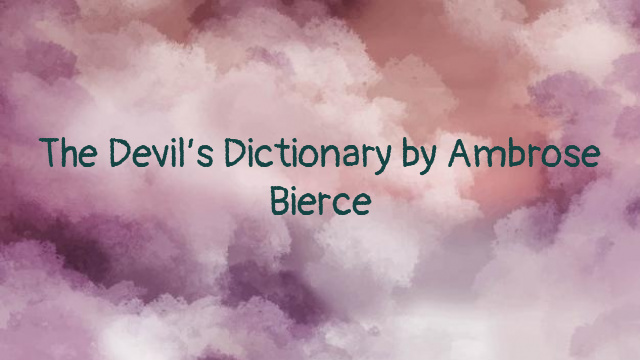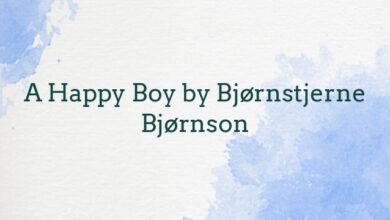
The Devil’s Dictionary by Ambrose Bierce
Originally published as The Cynic’s Word Book, Ambrose Bierce’s wickedly satirical “reference book” was retitled The Devil’s Dictionary in 1911.
Preface
The Devil’s Dictionary was begun in a weekly paper in 1881, and was continued in a desultory way at long intervals until 1906. In that year a large part of it was published in covers with the title The Cynic’s Word Book, a name which the author had not the power to reject or happiness to approve. To quote the publishers of the present work: “This more reverent title had previously been forced upon him by the religious scruples of the last newspaper in which a part of the work had appeared, with the natural consequence that when it came out in covers the country already had been flooded by its imitators with a score of ‘cynic’ books — The Cynic’s This, The Cynic’s That, and The Cynic’s Other. Most of these books were merely stupid, though some of them added the distinction of silliness. Among them, they brought the word “cynic” into disfavor so deep that any book bearing it was discredited in advance of publication. Meantime, too, some of the enterprising humorists of the country had helped themselves to such parts of the work as served their needs, and many of its definitions, anecdotes, phrases and so forth, had become more or less current in popular speech. This explanation is made, not with any pride of priority in trifles, but in simple denial of possible charges of plagiarism, which is no trifle. In merely resuming his own the author hopes to be held guiltless by those to whom the work is addressed — enlightened souls who prefer dry wines to sweet, sense to sentiment, wit to humor and clean English to slang. A conspicuous, and it is hope not unpleasant, feature of the book is its abundant illustrative quotations from eminent poets, chief of whom is that learned and ingenius cleric, Father Gassalasca Jape, S.J., whose lines bear his initials. To Father Jape’s kindly encouragement and assistance the author of the prose text is greatly indebted.
But yesterday I should have thought me blest
To stand high-pinnacled upon the peak
Of middle life and look adown the bleak
And unfamiliar foreslope to the West,
Where solemn shadows all the land invest
And stilly voices, half-remembered, speak
Unfinished prophecy, and witch-fires freak
The haunted twilight of the Dark of Rest.
Yea, yesterday my soul was all aflame
To stay the shadow on the dial's face
At manhood's noonmark! Now, in God His name
I chide aloud the little interspace
Disparting me from Certitude, and fain
Would know the dream and vision ne'er again.
Baruch Arnegriff
It is said that in his last illness the poet Arnegriff was
attended at different times by seven doctors.
Youth is the true Saturnian Reign, the Golden Age on earth
again, when figs are grown on thistles, and pigs betailed with
whistles and, wearing silken bristles, live ever in clover, and
clows fly over, delivering milk at every door, and Justice never
is heard to snore, and every assassin is made a ghost and,
howling, is cast into Baltimost!
Polydore Smith




